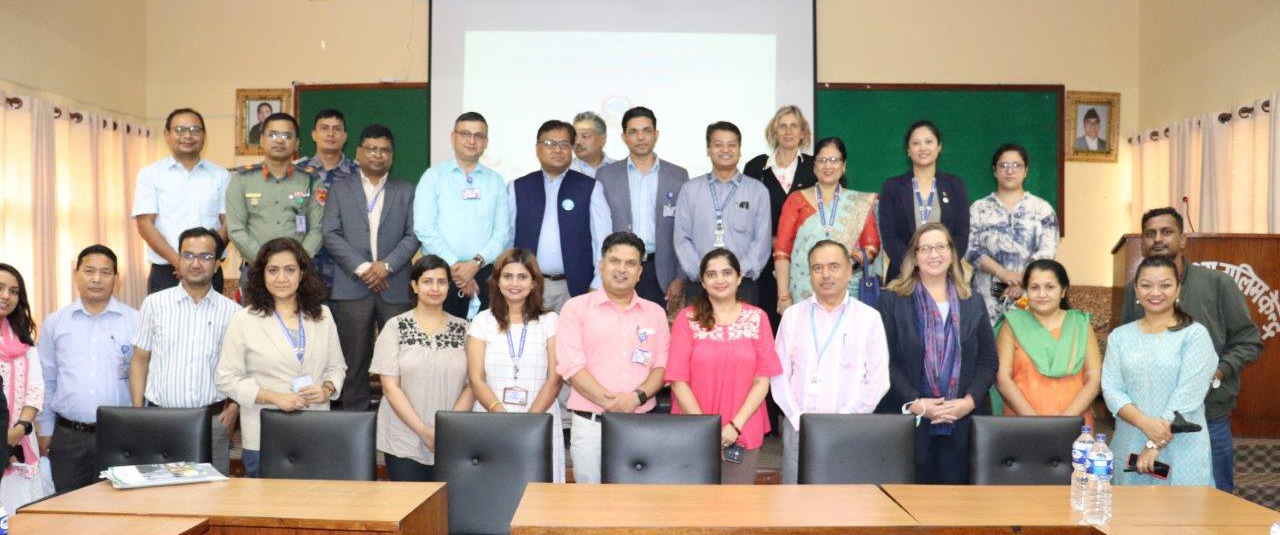Nepal: New joint project on health care waste management
Health Care Without Harm and the Health Environment and Climate Action Foundation (HECAF 360) have partnered with the Deutsche Gesellschaft für Internationale Zusammenarbeit (German Development Agency, GIZ) for a 22 months project to foster environmental resilience and improve health care waste management practices as part of German Development Cooperation (GDC)’s support in the health sector in Nepal.
Most of the waste produced by hospitals can be classified as general waste, similar to that produced in a household. However, up to a third of it must be treated before disposal, such as infectious and hazardous waste and waste capable of causing injury. If the infectious waste is mixed with the general, the total waste becomes hazardous.
Nepal has been working to improve its infrastructure and capabilities in health care waste management in cooperation with development partners like GIZ, the World Health Organization, UNICEF and the United Nations Development Programme (UNDP). For about two years, Health Care Without Harm, GIZ, and HECAF360 with funding from the Federal Ministry of Economic Cooperation and Development (BMZ), will work with Nepal’s Ministry of Health and Population (MoHP) and four major hospitals in Kathmandu valley on health care waste management and capacity-building, and in nine other hospitals out of Kathmandu valley on technical advice and peer learning.
“Together, this partnership has the potential to create model hospitals which not only manage their waste safely but can be examples to others across the whole country,” says Ruth Stringer, International Science and Policy Coordinator, Health Care Without Harm.
This partnership builds on the expertise of each of the organizations, explains Stringer. For the past 20 years, HECAF360 has been working on the implementation of safe and sustainable healthcare waste management systems. Health Care Without Harm has the technical expertise to maximize the impact at all hospitals, and GIZ is part of the high-level technical working groups that will guide national policies and strategies.
GDC is supporting the Ministry of Health and Population implementing the Nepal Health Sector Strategy through the bilateral programme, “Support to the health sector strategy” with a project duration from July 2021 to June 2024. The project builds on the achievements of the previous GIZ project “Support to Health Sector Programme”, and aims at consolidating successful approaches for handing over to the partner organization.
Training and networking
Health Care Without Harm and HECAF360 will work with the hospitals on health care waste management and build capacity via onsite and online training sessions and discussions. All the hospitals will receive a Global Green and Healthy Hospitals (GGHH) network membership. This international network of health care organizations offers a diverse array of programs and resources for members to take advantage of like educational tools, guidance documents, discussion forums, webinars and training sessions to keep them on the pulse of the sustainable health care field. Currently, the network has over 1,600 members in 78 countries who represent the interests of over 60,000 hospitals and health centers.
In addition, Health Care Without Harm and HECAF360 will support the implementation of the Nepalese National Health Care Waste Management Standards and Operating Procedures guidance in four hospitals in the Kathmandu Valley by onsite training and mentoring their staff.
On June 10, 2022, these four hospitals signed a Memorandum of Understanding (MoU) to signal their commitment to the project. These are the National Academy of Medical Sciences - Bir Hospitals, Patan Academy of Health Sciences - Patan Hospital, Shukraraj Tropical and Infectious Disease Hospital Teku, and the Nepal Armed Police Hospital. The Director General of the Department of Health Services and Director of the Management Division, Nursing Division, MoHP; the Country Director of GIZ-Nepal; the Nepal office of the World Health Organization, and others participated in the event.

Members of GIZ, HECAF360, Nepal's Ministry of Health and participating hospitals at the ceremony where the MOU was signed. Photo: GIZ and HECAF360
On behalf of the MoHP, Dr. Deependra Raman Singh, Director General of Department of Health Services says “sustainable healthcare waste management is a priority programme of MoHP and partnership with GIZ and other development partners is much appreciated”.
Dr. Elke Foerster, Country Director of GIZ-Nepal explains that “the commitment of MoHP, hospitals and development partners for sustainable healthcare waste management is a key milestone for successful implementation of this project.”
Sustainable health care waste management benefits hospitals and health centers, and the communities they serve. “By implementing these criteria, hospitals can reduce the levels of pollution and greenhouse gas emissions that come from waste burning, protect health workers from infection and injuries, and provide a cleaner and more pleasant environment for everyone who spends time in the hospital,” explains Ruth Stringer.
